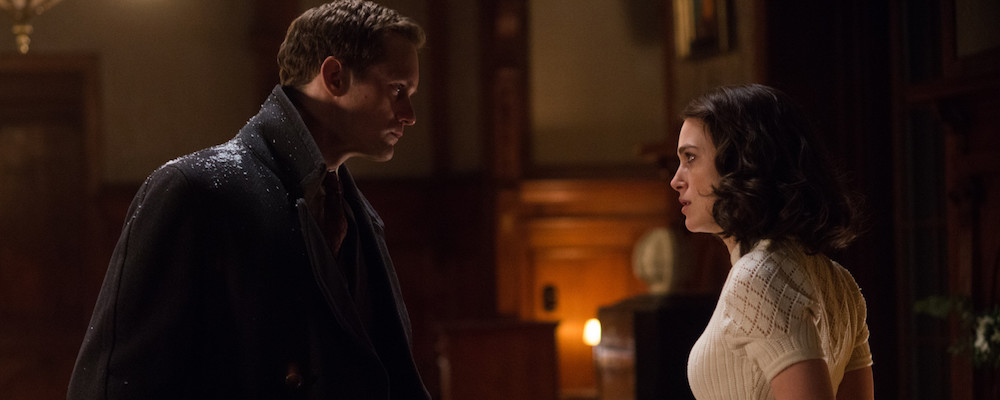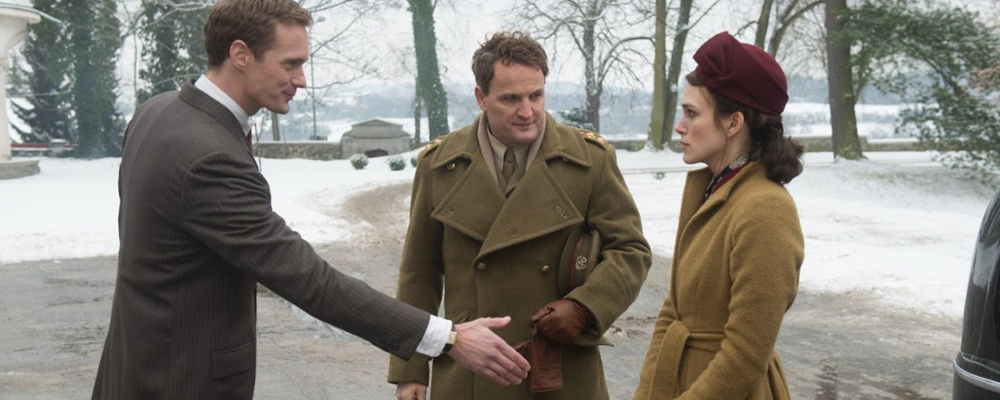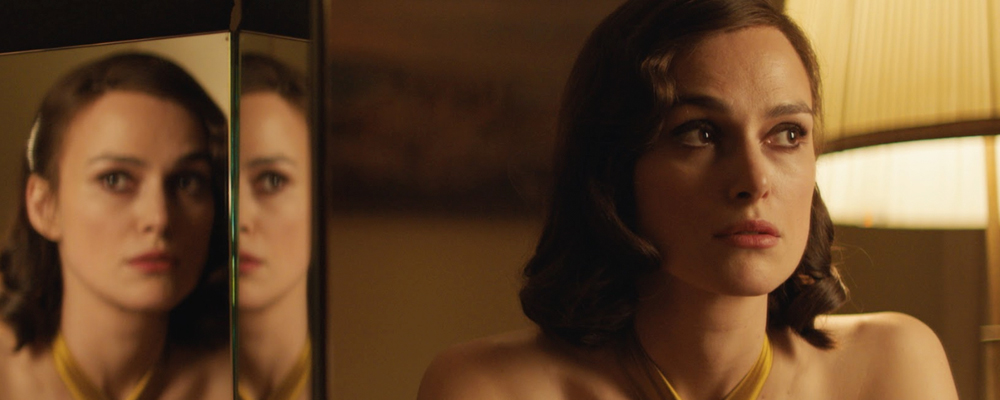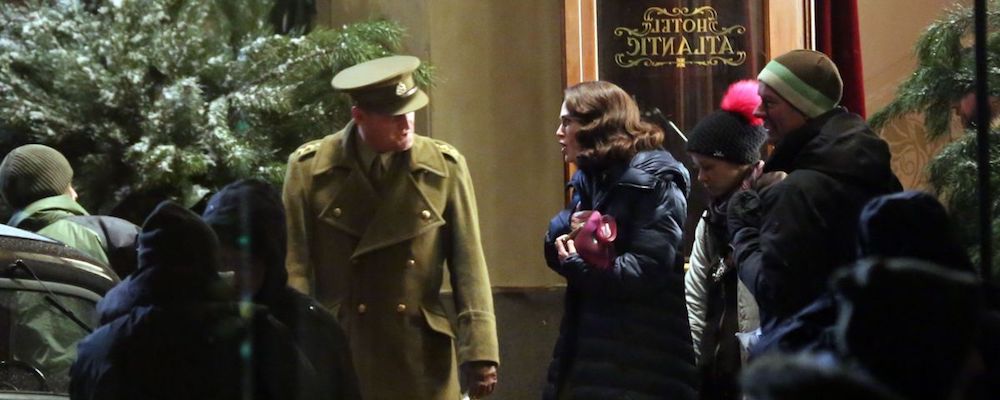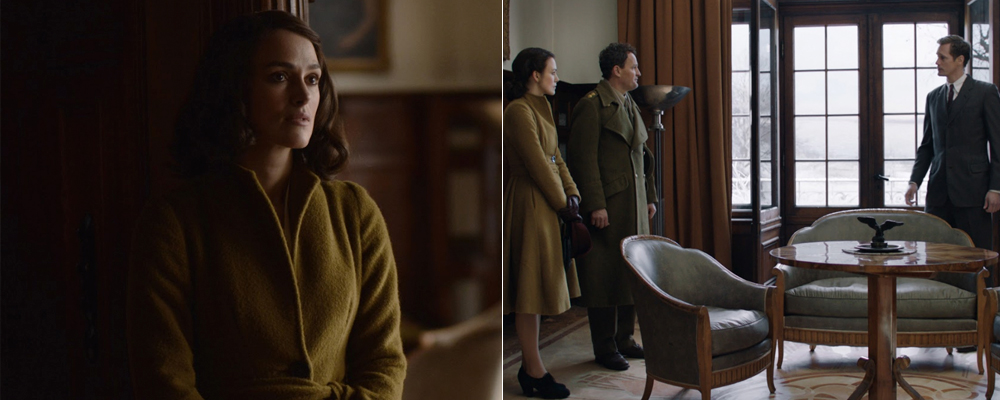‘The Aftermath’ Puts Keira Knightley and Alexander Skarsgård in a Wartime Love Triangle
Alci Rengifo
“The Aftermath” finds Keira Knightley trapped in one of those classic wartime situations where a young woman must choose between her distracted husband and a chiseled, handsome temptation. The film indeed tries to justify the scandalous proceedings with attempts at depth, but in the end this is the movie equivalent of a quick consumption bestseller. Indeed the source material is a novel of the same name by Rhidian Brook, who is the kind of author retirees like to get cozy with during the summer. No matter the source however, we expect a film about infidelity to have some passion, sensuousness or insights into uncertain feelings. Instead we receive a by the book period film, conveniently using World War II as the background.
Knightly plays Rachael Morgan, the wife of a British colonel named Lewis Morgan (Jason Clarke). It’s 1946 and Rachael arrives in Hamburg, Germany, which lies in ruins after the brutal combat of the war. Morgan is put in charge of the British forces occupying the city and overseeing its reconstruction. The two move into a grand house originally belonging to a wealthy German, Stephen Lubert (Alexander Skarsgård), whose wife was killed in the Allied bombings and is now living alone with his daughter Freda (Flora Thiemann). Rachael and Lewis are having their own marital difficulties due to the death of their own son during the war. There is much tension in the city as former Nazi party members are interrogated and rogue elements still loyal to the fascist cause form gangs. At first Rachael is uneasy with Lewis allowing Stephen and Freda to stay in the house, one senses it must be because of the way Stephen and Rachael exchange glances. As Lewis spends his days away, looking over the ongoing chaos in the city, Rachael and Stephen begin to grow closer and eventually knock boots. As the affair grows more intense, Lewis remains oblivious and Freda gets involved with the pro-Hitler underground.
“The Aftermath” is directed by James Kent, who did period wonderfully in 2014’s “Testament of Youth.” He handsomely mounts this film, which is also produced by Ridley Scott’s company Scott Free, which is always keen on maintaining the British tradition of elegant production values. Bombed out Hamburg looks convincingly ominous, cloudy skies keep everything grey and the Lupert home is all refinement. In other words, it looks like a typically well-shot British drama. What’s lacking is real heart and soul, even some clarity. To properly pull off an affair onscreen real sexual tension must be built between the two sinners, no matter the story’s setting. In movies like “Damage” or “Unfaithful,” there is a sense of danger and secret realizations when the married character looks at the object of temptation. Here Rachael and Stephen have little chemistry or tension, there is no hint of how her imbedded hatred of the enemy suddenly translates into desire for this German. Moments which should feel like volcanoes of tension being released are sudden and bland, as when Stephen tells her to kick him out of the house if she so averse to Germans, then suddenly kisses her (“here, I’ll give you an excuse”). Other moments spiral into cliché melodrama and overly dramatic mating. All it takes is for Stephen to cut his head and Rachael to bandage it for the two to suddenly unleash the pleasures of the flesh on top of the dining room table (interrupted by the headlights of Lewis’s car of course). The idea is apparently that Stephen and Rachael’s losses from the war mirror each other. He’s lonely because his a widower, she feels shut out from Lewis because of how he copes with their son’s death.
This is material that could have been psychologically powerful. Instead the movie romps through quick scenes where little is established. They are just two attractive people with the hots for each other. Stephen even has a nice cabin getaway in the woods where the lovers frolic while Lewis is away for six days hunting down fascists. Rachael, who in the opening scenes has a clear hatred for Germans, never bothers to truly interrogate Stephen about how he felt about Hitler, the war, Nazism or the discovered death camps. He just pontificates once about how never liked Nazis and how it’s easy for Rachael to feel superior, but that’s about as deep as the script gets on such matters. Melodrama and serious social commentary on this same subject matter have mixed well before, as in Rainer Werner Fassbinder’s great “The Marriage of Maria Braun.” But Fassbinder was a rebel while Kent is content with just making the imagery of this film look very nice. There is even the feel of missing chapters. When Lewis finds out about what’s happening during a dinner party, it’s done so clumsily and abruptly that it’s easy to miss how it even happens. Another soldier’s wife simply tells Lewis a gossipy line that says nothing and he immediately grabs Rachael, barking that oh so classic, “so how long have you been fucking him?!”
Alas there is another, more interesting movie that gets buried under the naughtiness. Freda’s descent into the pro-fascist underground is dark and fascinating, especially when she grows close to a boy her age with “88” tattooed on his arm, each 8 standing for the eighth letter in the alphabet, H, so the idea is you get “Heil Hitler.” But this section is never properly developed and culminates in a shooting that adds nothing to the rest of the narrative. The stubbornness of the defeated, the consciences wrecked by the war and revelations of the Holocaust, this would all make for riveting stuff in a stronger movie.
The cast are great actors made to phone in stagey moments. Keira Knightley returns to some of her wardrobe from the much better “Atonement,” but she simply lacks any fire here, playing Rachael with a one-note style that gets too bland. Alexander Skarsgård has always had less luck when he’s seducing someone else’s wife onscreen (remember that awful “Straw Dogs” remake?), but the man always has presence and here it’s wasted on a soap opera affair. He broods a lot and conjures more emotion when he nearly punches out a bigoted soldier for abusing his wife’s piano (or when he has Rachael over the dining table). The best performance is by Jason Clarke, who has one great scene when he realizes he has lost his wife, and breaks down while holding a sweater she has left behind.
“The Aftermath” has the elegant look of a well-made period piece, but its key flaw is that it offers little beyond the surface of its premise. Those who simply love to bask in the nostalgia of such films might enjoy it. Matters of the heart often make for the best stories, because we are creatures ruled by our passions, whims and fears, particularly when the world is falling apart. But even with the last world war as its backdrop, this story is one cold affair.
“The Aftermath” opens March 15 in select theaters.

